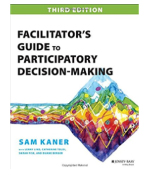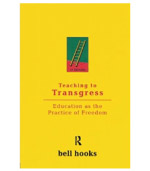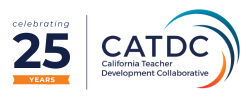4 Must-Read Books for the Beginning of the School Year

 Culturally Responsive Teaching and the Brain
Culturally Responsive Teaching and the Brain
This book by Zaretta Hammond draws on cutting-edge neuroscience research to offer an innovative approach for designing and implementing brain-compatible culturally responsive instruction and is appropriate for all teachers at any experience level who strive to make their classrooms a safe and rigorous place for all their students. In clear and accessible prose, Hammond prompts valuable self-reflection and offers the neuroscience behind important classroom dynamics like trust, student-teacher relationships, and our students’ stress levels
 Facilitator’s Guide to Participatory Decision-Making
Facilitator’s Guide to Participatory Decision-Making
As inevitable as the start of the school year, so is our presence in weekly and monthly meetings. Every year David Barkan, facilitator of Mastering Group Facilitation, recommends this valuable resource by Sam Kaner, now in its third edition. This book acknowledges the struggle many facilitators have to model and cultivate participatory practices. Learn concrete skills that will lead to truly collaborative meetings. Prepare agendas, draw your faculty out, and strive for full participation.
 Teaching to Transgress
Teaching to Transgress
This book by bell hooks continues to be a must-have resource on all educators’ bookshelves. Teaching students to “transgress” against racial, sexual, and class boundaries in order to achieve the gift of freedom is, for hooks, the teacher’s most important goal. Furthermore, education as the practice of freedom is an important mindset and powerful defense in our current political climate. If you need some extra inspiration, or more reasons to read this book, in hooks’s own words: “But learning is a place where paradise can be created. The classroom, with all its limitations, remains a location of possibility. In that field of possibility we have the opportunity to labor for freedom, to demand of ourselves and our comrades, an openness of mind and heart that allows us to face reality even as we collectively imagine ways to move beyond boundaries, to transgress.”
 Thanks for the Feedback
Thanks for the Feedback
How do we learn to hear challenging feedback and how can we use it to better navigate our professional and personal spheres? This resource by Douglas Stone and Sheila Heen offers a framework and powerful tools to help us metabolize feedback, while acknowledging why it is so difficult to hear. Developing your skills to give and receive feedback will continue to benefit your teaching practice as you work with colleagues, coaches, parents, and students.
